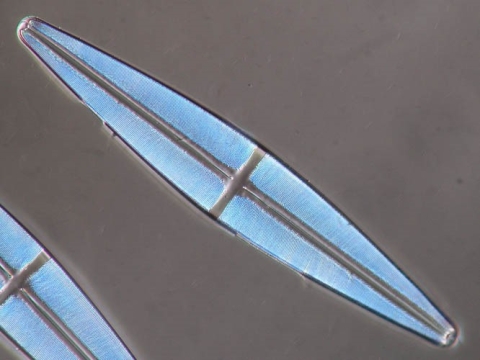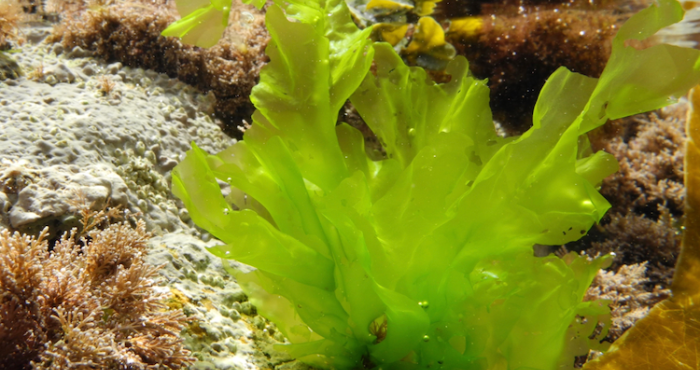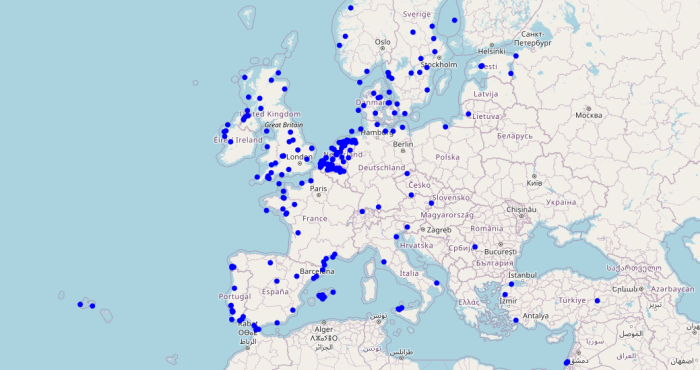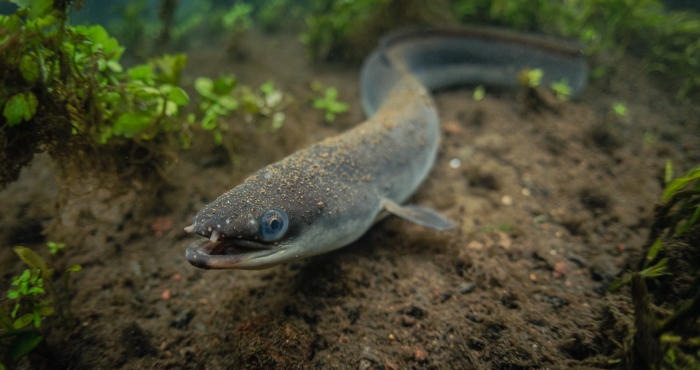DiatomBase Portal launched!
After more than 2 years of preparations, the DiatomBase portal is now officially launched.

The first conversations with Patrick Kociolek – one of the driving forces behind the Catalogue of Diatom Names (CDN) at the California Academy of Science (CAS) – to possibly transfer the CDN to Aphia were initiated by Koen Sabbe (UGent) and date back to May 2015.
A copy of the Catalogue of Diatom Names came to the Flanders Marine Institute (VLIZ) – host institute of Aphia and WoRMS – in the spring of 2016, which was the starting point for the data rescue of the Catalogue of Diatom Names (CDN), by integrating its content into Aphia.
DiatomBase wants to include names that have appeared since the Catalogue of Diatom Names was last updated (2011), as well as to include information about types, ecology, images, original descriptions and distributions.
Since March 2017, a group of 20 Diatom experts is taking responsibility to further update, quality control and complete the content of DiatomBase. An editor workshop in Prague, organized back-to-back with the 11th Central European Diatom meeting was the starting point for this, where a work plan and short- and long-term goals were identified. The first actions of the editorial board related to complete missing authorships and assigning environment flags. In parallel, names will be checked on their current validity and synonyms will be linked to the currently used names.
To date, there are almost 60.000 names in DiatomBase. It is the work of the editors, with help from our community, to incorporate new entries, resolve discrepancies, and add additional information to the current entries to make DiatomBase a wide-ranging resource for work on diatoms.
The DiatomBase initiative is supported by LifeWatch Belgium, part of the E-Science European LifeWatch Infrastructure for Biodiversity and Ecosystem Research. LifeWatch is a distributed virtual laboratory which is used for different aspects of biodiversity research. The Taxonomic Backbone of LifeWatch aims at bringing together taxonomic and species-related data and at filling the gaps in our knowledge. In addition, it gives support to taxonomic experts by providing them logistic and financial support for meetings and workshops related to expanding the content and enhancing the quality of taxonomic databases.
A copy of the Catalogue of Diatom Names came to the Flanders Marine Institute (VLIZ) – host institute of Aphia and WoRMS – in the spring of 2016, which was the starting point for the data rescue of the Catalogue of Diatom Names (CDN), by integrating its content into Aphia.
DiatomBase wants to include names that have appeared since the Catalogue of Diatom Names was last updated (2011), as well as to include information about types, ecology, images, original descriptions and distributions.
Since March 2017, a group of 20 Diatom experts is taking responsibility to further update, quality control and complete the content of DiatomBase. An editor workshop in Prague, organized back-to-back with the 11th Central European Diatom meeting was the starting point for this, where a work plan and short- and long-term goals were identified. The first actions of the editorial board related to complete missing authorships and assigning environment flags. In parallel, names will be checked on their current validity and synonyms will be linked to the currently used names.
To date, there are almost 60.000 names in DiatomBase. It is the work of the editors, with help from our community, to incorporate new entries, resolve discrepancies, and add additional information to the current entries to make DiatomBase a wide-ranging resource for work on diatoms.
The DiatomBase initiative is supported by LifeWatch Belgium, part of the E-Science European LifeWatch Infrastructure for Biodiversity and Ecosystem Research. LifeWatch is a distributed virtual laboratory which is used for different aspects of biodiversity research. The Taxonomic Backbone of LifeWatch aims at bringing together taxonomic and species-related data and at filling the gaps in our knowledge. In addition, it gives support to taxonomic experts by providing them logistic and financial support for meetings and workshops related to expanding the content and enhancing the quality of taxonomic databases.



